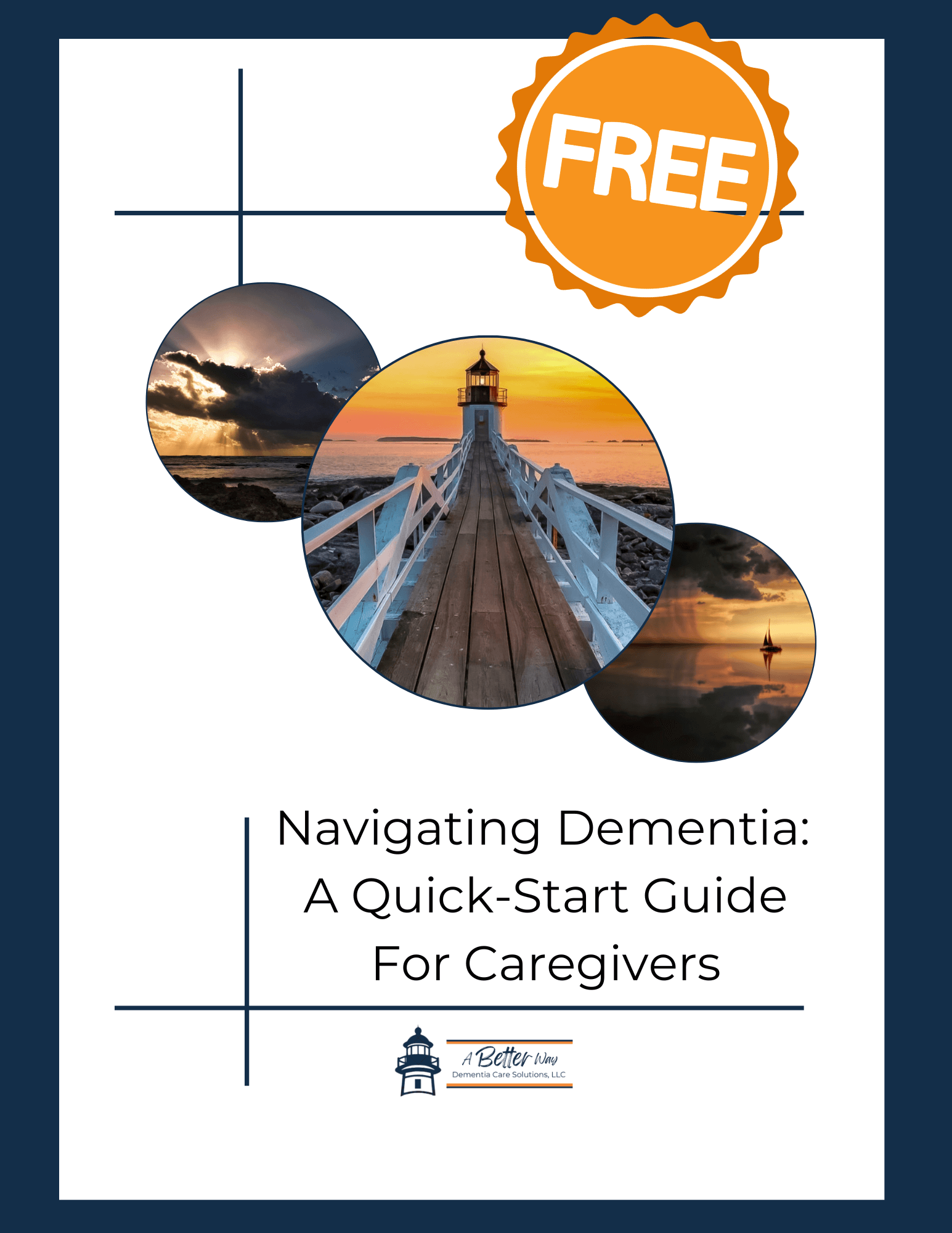
As a caregiver, you play a vital role in nourishing both body and spirit. Mealtime isn’t just about nutrients. It’s a chance for connection, comfort, and consistency. But with dementia, even simple meals can feel overwhelming for both of you. You’re not alone. With a few practical tweaks, you can create routines that reduce stress, support brain health, and bring joy back to the table.
In this post, you’ll explore:
• Why consistent mealtime routines help reduce stress
• How to adjust portion sizes and limit overwhelm
• Simple ways to support brain health through food
• A free Nutrition Guide to make planning easier
Let’s lighten your plate-starting today.
Why Mealtime Routines Matter
1. Builds predictability and calm
People living with dementia often thrive on routine. Eating meals at the same time and place each day can provide comfort and a sense of stability. You can use clocks, alarms, or color-coded reminders to help signal when it’s time to eat. Sometimes even playing music before each meal can set the tone.
2. Helps manage appetite changes
Your person may forget they’re hungry-or eat too much at once. Scheduled small meals and snacks can help maintain blood sugar levels, energy, and mood throughout the day.
3. Reduces decision fatigue
Dementia can make even simple choices feel overwhelming. A consistent weekly plan with limited food options can reduce stress, support memory, and help your person feel more in control.
Caregiver Tip: Eat with them! Eating with someone who has dementia offers gentle cues-like when to start, pace, and finish a meal. Your presence provides comfort, reduces confusion, and encourages appetite through social connection and routine.
Right-Sized Portions Make a Big Difference
Smart portioning tips:
• Serve small amounts. You can always offer seconds if needed. You may actually get them to eat more if you give them less....at a time.
• Use smaller plates. This helps the meal look complete and encourages healthy intake.
• Pre-plate meals. Present the full portion rather than serving family-style, which can cause confusion.
How to ease overwhelm:
• Offer one course at a time. For example, serve vegetables first, then the main dish.
• Minimize distractions. Turn off the TV, clear the table, and adjust the lighting if needed.
• Use cups instead of bowls for soup. This makes it easier for the person to eat if they are having difficulty using a spoon .
Creating a calm, predictable meal space can reduce frustration and help your loved one stay focused on eating.
A Gentle Guide to Brain-Healthy Eating
Nutrition plays a key role in supporting brain health-even after a dementia diagnosis. One of the best-supported approaches is the MIND diet, which blends elements of the Mediterranean and DASH diets. It encourages foods that reduce inflammation and support cognition.
Here are the key food groups to include:
• Leafy greens (6 or more servings per week)
• Other vegetables (daily)
• Berries (especially blueberries and strawberries)
• Whole grains
• Nuts and seeds
• Legumes and beans
• Fish (once or more per week)
• Poultry (two or more times per week)
• Olive oil as the primary fat
These foods are packed with antioxidants, fiber, and brain-boosting nutrients like omega-3 fatty acids. They’re also easy to incorporate into small, soft, or familiar meals.
Caregiver Tip: Don’t worry about perfection. Even modest changes can help. Swapping white bread for whole grain or adding berries to oatmeal is a win.
Want Help Putting This Into Practice?
You don’t have to figure this all out alone. I’ve created a free Nutrition Guide to help you simplify meals and support brain health with confidence.
Inside, you'll find practical guidance like:
- Keep it Simple & Familiar
- Hydration is Key
- Gentle Nutrition for Brain Health
- Calm the Environment
- Support Independence
Let this guide lighten your caregiving load and bring more ease to every meal. You’re not alone-support is here.
Notes
- Morris, M.C., Tangney, C.C., Wang, Y., et al. (2015). MIND diet associated with reduced incidence of Alzheimer’s disease. Alzheimer’s & Dementia, 11(9), 1007–1014. https://doi.org/10.1016/j.jalz.2014.11.009
- National Institute on Aging. (2021). Eating well and Alzheimer’s disease. Retrieved from https://www.nia.nih.gov
- Alzheimer’s Association. (2023). Nutrition and Alzheimer’s. Retrieved from https://www.alz.org
- Harvard T.H. Chan School of Public Health. (n.d.). The MIND Diet. Retrieved from https://nutritionsource.hsph.harvard.edu/healthy-weight/diet-reviews/mind-diet/
- Mayo Clinic. (2023). Dementia diet: Foods to eat and avoid. Retrieved from https://www.mayoclinic.org
- WebMD. (2023). Brain foods that help memory. Retrieved from https://www.webmd.com
- Alzheimer’s Society UK. (2024). Mealtimes and dementia. Retrieved from https://www.alzheimers.org.uk
Disclaimer
The information contained in this blog post is for general educational and informational purposes only and should not be construed as legal advice, financial advice, health advice, or medical advice. The information provided is not a substitute for advice from a qualified professional who is aware of the facts and circumstances of your individual situation. We expressly recommend that you seek advice from a professional familiar with your specific situation.
Want to keep figuring this out together?
Subscribe to Finding Our Way in Dementia Care and get honest stories, helpful tips, and gentle support delivered to your inbox every week. Just real talk, grounded care, and space to breathe.
Subscribe to Finding Our Way in Dementia Care and get honest stories, helpful tips, and gentle support delivered to your inbox every week. Just real talk, grounded care, and space to breathe.
Kind truth. Clear steps. Warm guide.
















0 Comments